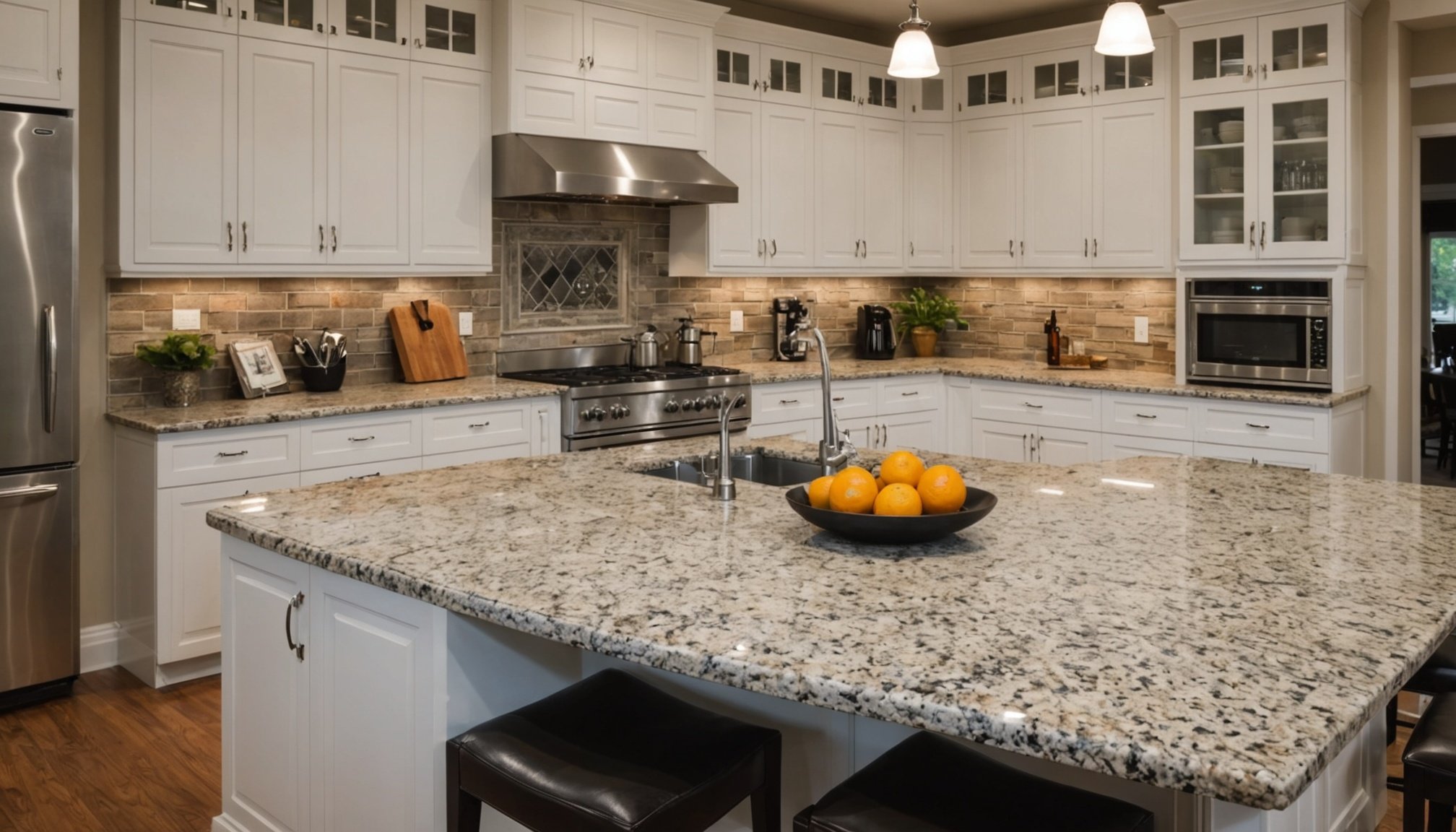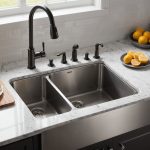When you invest in a gorgeous granite countertop, you want to make sure it stays in prime condition for as long as possible. Granite, a natural stone, is known for its sturdiness and ability to withstand the test of time. However, like all good things, it requires a certain level of care and regular maintenance to keep its shine.
In this article, you will discover how to properly care for your granite countertops, ensuring they maintain their beauty and durability for a lifetime. We will guide you through the do’s and don’ts, from the appropriate cleaners to use to the right way to seal your countertop, ensuring your granite surface remains as immaculate as the day it was installed.
Also to see : What Features to Look For in a High-Quality Yogurt Maker?
Understanding the Nature of Granite
Before diving into the maintenance procedures, it is important to understand the nature of granite. Granite is a naturally porous stone, which means it has the potential to soak up liquids and develop stains if not properly sealed. Understanding this characteristic is crucial to knowing how to care for your countertops and prevent damage.
Granite countertops, whether in your kitchen or bathroom, are exposed to a variety of substances such as water, oils, and food particles. If your granite is not properly sealed, these substances can seep into the pores of the stone and cause discoloration or staining. On top of that, its surface can dull over time from continuous contact with abrasive materials.
Additional reading : What Are the Benefits of Using Ceramic Cookware Over Non-Stick?
Proper care and routine maintenance can keep your granite countertop looking like new for years to come.
Everyday Cleaning of Granite Countertops
Cleaning granite countertops doesn’t have to be a complex chore. In fact, a clean, soft cloth and warm water are often enough to keep your granite surface clean. Always avoid harsh chemicals or acidic cleaners as they can dull the granite’s shine and degrade the sealer over time.
To clean your countertop, simply moisten the cloth with warm water and wipe the surface. If there are stubborn stains that won’t come off with just water, use a pH-neutral stone cleaner. Ensure that the cleaner is designed for use on granite surfaces to prevent any potential damage.
Remember to promptly clean any spills, especially those that are acidic or oily, as they can seep into the granite and cause stains.
Dealing with Stains on Granite Countertops
Despite your best efforts, sometimes stains do happen. Depending on the stain, you will need to approach the cleaning process differently.
Water stains, for example, can leave visible marks on your granite countertop. To deal with these, you can use a paste of baking soda and water. Apply the paste to the stain, cover it with plastic wrap, and let it sit overnight. The next day, remove the paste and rinse the area with water.
If you have oil-based stains such as grease or milk, again, use a baking soda paste but this time mix it with water or hydrogen peroxide. Leave it on the stain until it dries, then rinse with water.
Remember to always test any cleaning solution on a small, inconspicuous area first to ensure it will not discolor or damage your granite.
Sealing Your Granite Countertop
Sealing is a critical step in maintaining your granite countertops. It provides a protective layer that prevents liquids and stains from soaking into the stone. Over time, the sealant can wear away and will need to be resealed to keep the granite protected.
You can tell when your granite needs resealing by performing a simple water test. Pour a small amount of water onto the surface of your countertop. If the water beads up, the seal is intact. If the water seeps into the granite and darkens it, it’s time to reseal.
To seal your granite countertop, clean the surface thoroughly and let it dry. Apply the sealer evenly using a clean, soft cloth and let it soak into the stone for the recommended time on the sealer’s instructions. Afterward, wipe off any excess sealer and allow the countertop to dry.
Averting Damage to Your Granite Countertop
Prevention is always the best way to maintain the longevity of your granite countertop. Always use cutting boards when preparing food to avoid scratching the surface. Avoid placing hot pots and pans directly on the granite as extreme heat can cause cracks.
Also, be careful with heavy objects near your countertop. Dropping a heavy pan or dish can chip or crack your granite surface.
In conclusion, taking care of your granite countertop involves regular cleaning, dealing with stains promptly, sealing as needed, and avoiding actions that could damage the stone. In doing so, you are sure to enjoy the beauty and functionality of your granite countertop for a lifetime.
Protecting Granite Countertops from Harsh Chemicals
One aspect that often gets overlooked in maintaining granite countertops is the harmful effects of harsh chemicals. As a natural stone, granite is highly resistant, but it is not invulnerable to all substances.
Various household cleaning products contain chemicals that can degrade the sealant on your granite surface and rob it of its shine. Avoid using products with bleach, ammonia, or other acidic substances. Instead, stick to pH-neutral stone cleaners specifically designed for granite surfaces.
Quartz countertops, another popular choice for kitchens, are more resistant to chemicals than granite, but they lack the unique, natural patterns found in granite. If you opted for granite countertops for their natural beauty, proper care is crucial in preserving their look.
Avoid using abrasive cleaning pads, as these can scratch the granite surface. Instead, use a soft cloth or sponge for daily cleaning. Rinely, spray the cleaner onto the granite surface and gently wipe it with the cloth or sponge. Rinse the surface with warm water and dry it with a soft, clean towel to prevent water spots.
Don’t forget to clean the corners and edges of your granite countertop. Dirt and grime can accumulate in these areas and affect the overall appearance of your countertop.
The Role of Professional Services in Granite Countertop Maintenance
While proper daily cleaning and sealing can go a long way in maintaining your granite countertops, sometimes professional help can be beneficial. This is especially true for large stains or damages such as chips or cracks.
Professionals have access to specialized tools and products that can help restore the original look of your granite countertop. They can also reseal the countertop more effectively, ensuring all areas, including edges and corners, are well protected.
If you have granite kitchen countertops that receive heavy use, it may be worth investing in professional cleaning and sealing services once a year. This can help maintain the beauty and durability of your granite surface, allowing you to enjoy it for many years to come.
It’s important to remember that every granite countertop is unique, with variations in color, pattern, and porosity. This means the care and maintenance needed may vary slightly. Always pay attention to the condition of your granite countertop and adjust your maintenance routine as needed.
Conclusion
A granite countertop is a significant investment that can add a touch of luxury to your home. With proper care and maintenance, it can maintain its charm and functionality for a lifetime. Regular cleaning with a soft cloth and warm water, prompt response to spills and stains, annual sealing, and occasional professional services are the keys to achieving this.
Avoid using harsh chemicals and abrasive materials on your granite countertop, and be mindful of potential damages from heat and heavy objects. In doing so, you not only preserve the pristine condition of your countertop but also contribute to a more sustainable lifestyle by extending the lifespan of your granite countertop.
Remember, the beauty of your granite countertop lies not only in its unique, natural patterns but also in the care you provide to keep it in its best condition. So, take care of your granite countertop as it deserves, and it will reward you with a lifetime of service and beauty.











